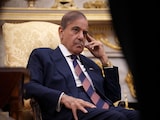So the Pakistan Field Marshal had his lunch with the President of the United States. Whether the mercurial US President planned to also get Prime Minister Modi to Washington to 'share a meal' with his dangerous neighbour, as he had said earlier, is unclear. But while Pakistan may celebrate the 'historic' culinary bonding in Washington, the bottom line is that there are no free lunches, particularly not with a self-proclaimed transactional president. Gen Asim Munir knows that very well, and is expected to use America's inevitable demands for his own ends, some of which may result in unknown effects on the declared continuance of 'Operation Sindoor'.
Copy-Pasting From History
First, look at the lessons of history, in terms of how Pakistan has used US presence and vice versa. On December 8, 1959, a soon-to-be Field Marshal awaited the pleasure of a President of the United States. President Ayub Khan, a dictator who had seized power a year earlier, hailed Dwight D. Eisenhower as a leader of the 'free world', bringing to his attention the threat from India, the Kashmir question, the yet-to-be-signed Indus Water treaty, its complete dependence on those waters, and the threat from 'communism'.
Replace the Russian threat with China, and the whole read-out can be almost copy-pasted into current Pakistani files, especially as Eisenhower, who said he was "delighted that President Ayub had taken the initiative ..to improve relations with India", had got Ayub to agree to set up a military base in Peshawar, to spy on the Russians.
There are free lunches in Washington.
Munir Has The Levers
Munir, however, knows his man in America. He came prepared with a proposal to nominate Trump for the Nobel Peace Prize for stopping a nuclear war - which, Trump would know, is a non-starter. A 'nomination' can't even be announced, let alone making it to the top when Trump is cordially disliked by his own treaty partners. But PM Modi was forced to do the opposite - deny the position of 'peacemaker' to the President in his telephone conversation, while his Foreign Secretary did so publicly.
Pakistan scored on that one, but that just might be a false score on one level. That Munir was the first serving chief to meet with the US President was hailed back home. More notable was the fact that the meeting took place - unusually so - with just Secretary of State Marco Rubio and Special Representative for the Middle East, Steve Witcoff, and, on the Pakistani side, the ISI Chief General, Asim Malik. No civilian aides whatsoever.
Apart from the presence of Witkoff, Trump's presser later made it clear that the discussion was on Iran. Even as all this was going on, another aircraft carrier group, the USS Nimitz, arrived to join up with the existing carrier group in the Persian Gulf. If war is on the table, Pakistan will certainly be asked to assist with bases, from where multiple platforms can take off. You can't launch ground operations into Iran, especially Special Forces, from the sea. Alternatively, though Trump is determined to finish off Iran's nuclear programme, he would much prefer a covert operation that delivers the same, rather than an open war.
For that, too, Pakistan is the master player. It's been spying on Iran for years. That just before leaving, Sharif promised 'steadfast' support means little. Sharif himself means little then, and even less so now.
But the time for slow operations is long past. Netanyahu's Israel is in full throttle. Stopping now is not an option. Any pause, and Iran will pursue its nuclear deterrent to the full. It does seem war is the only answer.
And that brings in Pakistan.
America Is Munir's Insurance
All this suits Munir right down to the ground. The present Field Marshal couldn't be more unlike Ayub Khan, who, despite beginning the cycle of military interventions, was at least known to be a capable and shrewd leader. Munir is a patient, self-seeking personality, who jailed a Prime Minister and the former ISI chief for opposing him. That also indicates a vengeful spirit.
Munir also seems to know his history. The only time Pakistan could actually pay its debts was when the US was pouring money into it for the Afghan war. The Pakistani media had noted that the US sanctioned $33.4 billion for reimbursements to Pakistan during the Afghan war, 44% of which was on account of services that Islamabad rendered to support Washington's anti-terror operations in Afghanistan.
Here's another statistic. Claims of reimbursement were vastly inflated, until the assessment was that a full 70% of military aid was misspent, which meant that some $3.8 billion was diverted to fund not just the defence budget but luxurious villas for generals. Apart from that, the Bank of Pakistan inadvertently let out the fact that US reimbursements were vital to repaying Chinese loans.
Once Trump pulled out his troops, that tap slowly switched off. By 2024, aid for Pakistan was a paltry $173 mn. Munir needs that to change. Especially after the expenses incurred by fighting an Indian attack. PM Modi has now been quoted as saying clearly that terrorism is an act of war. And Pakistan likes its terrorists to be reasonably active.
What Happened After 26/11
Consider another history lesson. When the Mumbai attacks hit India in November 2008, US contractors, intelligence folks, and logistics personnel were thick on the ground, apart from US aircraft flying over Pakistan's airspace as they carried out the 'war on terror'. The Central Command was in charge, and its officers were in and out of the country. Furious decision-makers in India, contemplating punishment, would have had to contend with that, among other things.
Now, as India threatens that 'Operation Sindoor' is far from over, US troops are a nice bit of insurance against Indian fury. But that also means more terrorism, not less.
It's not the easiest play, but Pakistan has been there, done that, to its best advantage. Recall also that US operations had got Beijing, too, to open up its purse. After all, Chinese interest in the Gwadar port came only in the aftermath of the US invasion of Afghanistan. Prior to that, it had long turned a deaf ear to Pakistani sales talk.
China Can Queer The Pitch
There's only one thorn in this whole plan. This time around, it's not a Soviet-US fight, but a cold war with China. That brings the whole saga much closer to Asia, especially as Chinese cargo planes fly in aid for Iran.
Things may get very ugly. But then, the Soviets had also gotten furious in the past, targeting Pakistani border posts and air incursions. There was another fallout that was rarely noticed: during this entire period, the grip of the military on Pakistan steadily increased. Nothing like war to sustain a security state. All in all, this could be a win for a Field Marshal bent on staying on for life.
Shahbaz Sharif may as well put a cutout of himself in the Prime Minister's office and go home, and watch his favourite Turkish serials. He's been retired entirely.
(Tara Kartha was with the National Security Council Secretariat)
Disclaimer: These are the personal opinions of the author















